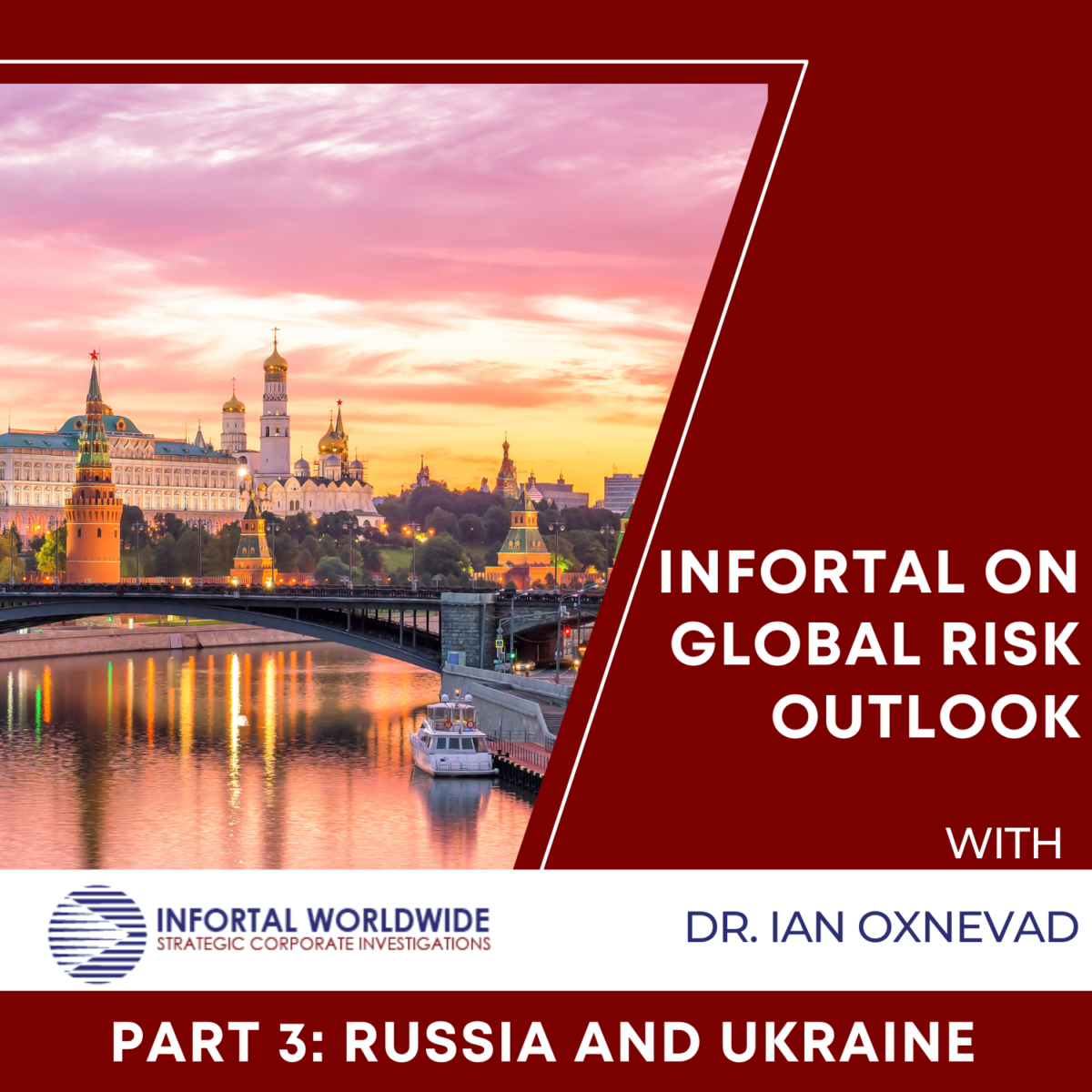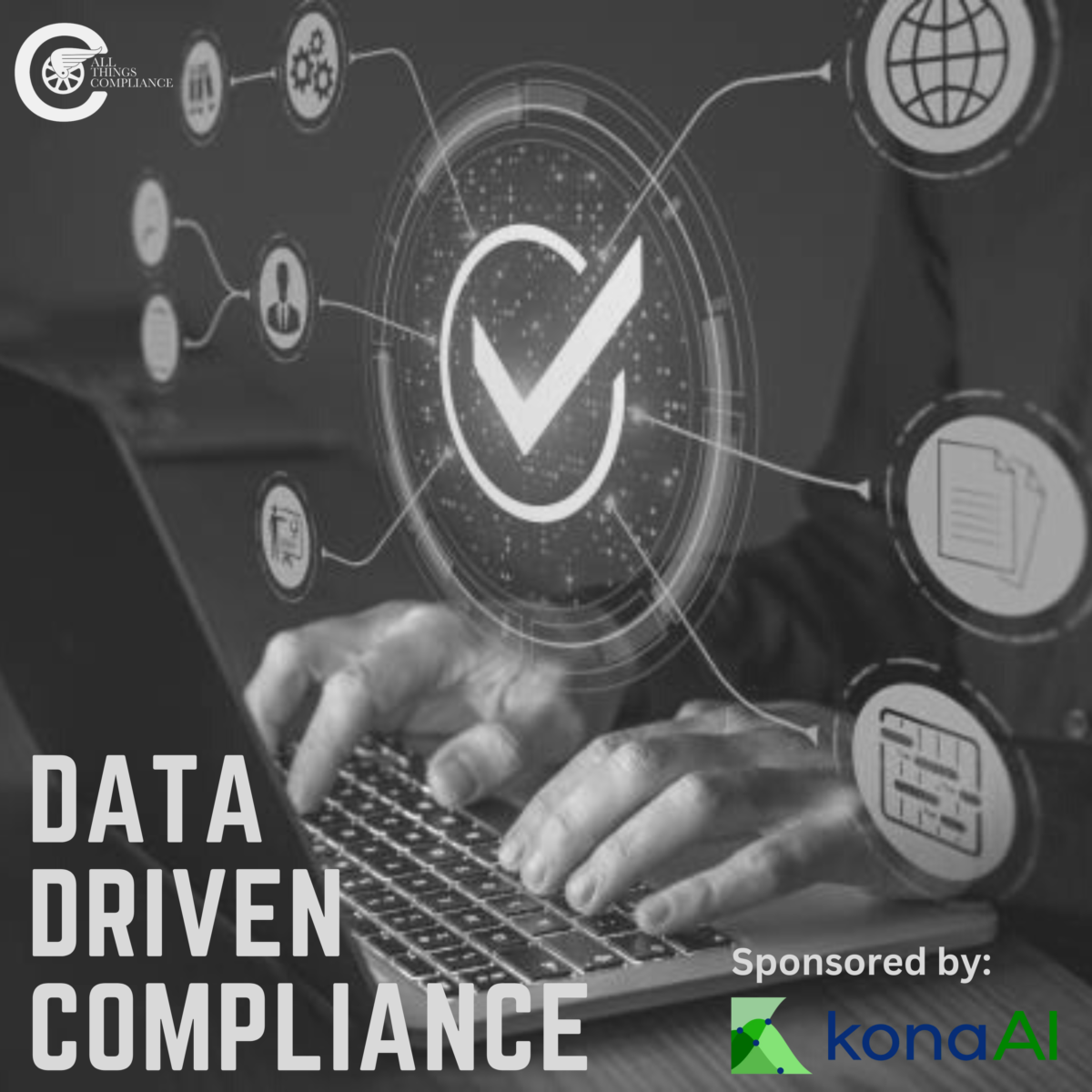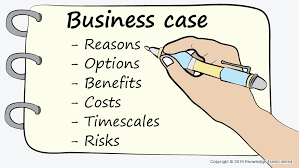I recently had the opportunity to visit with Vince Walden, founder and CEO of KonaAI, for a podcast series on the uses of data driven compliance. KonaAI is the sponsor of those podcasts. This blog post series will flesh out the podcast show notes. Over the next five blog posts, we will discuss generative AI and ChatGPT in compliance, the profiles of corrupt payments, making the business case for data-driven compliance, what to ask for and how to ask for it, and some success stories. Part 3 will discuss making the business case for data-driven compliance.
Vince Walden, the CEO and founder of KonaAI, is here with me as always. Walden pointed out a dual aspect to this, bringing risk and financial perspectives into play. The risk perspective aligns with meeting expectations from the Department of Justice, SEC, or other regulatory bodies, which include culture alignment and prudent data handling. The financial end deals with a knock-on effect of compliance: a potential improvement in financial performance by curtailing revenue leakage through fraud and improper payments. This is what compliance professionals do every day. In regulated industries, however, it is not simply about convincing others of the necessity. It is also about aligning the company’s tools and methods to meet the expectations of external regulatory bodies. In an ideal world, a company’s compliance goals should align with its business goals. But achieving this balance is easier said than done.
While regulatory compliance is important, businesses are about generating revenue and turning a profit. Balancing compliance with profitability can often seem like a tightrope walk. But businesses need to realize that this balance is possible and beneficial in more ways than one. Compliance and profitability could coexist with the help of a business-savvy compliance tool. Compliance professionals need to distance themselves from a narrow focus on policies and enforcement. A broader perspective, including understanding the importance of data-driven metrics and business context, can position these professionals as valuable contributors to an organization’s bottom line. Yet Walden warned against complacency, saying that professionals who only focus on regulation and leave the business aspect by the wayside can find themselves marginalized.
Increasingly, companies realize the value of having multiple perspectives at the decision-making table. While finance and internal audit have always been pivotal, including compliance in these discussions provides a more rounded view. This broad-based approach can unlock novel insights into operational efficiency, risk mitigation, and more. The dialogue between compliance, finance, and procurement has been improving. Industries like telecommunications, oil and gas, technology, and pharmaceuticals are leading this change, recognizing the value of integrated discussions. Vince stresses the need for transparency in transactions that pose risks to the organization and sees compliance professionals playing a significant role in these discussions.
One of the greatest challenges of being a compliance professional is speaking the language of the CFO and financial stakeholders. Convincing them about the monetary benefits of compliance involves more than just throwing around regulation jargon – it requires the ability to present your case strategically. Compliance professionals understand their audience and tailor their discussions accordingly. He advises professionals to focus on how data-driven compliance can save money, improve efficiencies, and prevent improper payments. This is how to get the CFO and other financial stakeholders on board and win them over with the business case for compliance.
Walden emphasizes the importance of understanding the CFO’s financial language to argue for effectively implementing data-driven compliance. Compliance professionals must demonstrate the return on investment and the success of compliance and fraud risk management programs. Key performance indicators such as dollar recoveries and risks avoided can be used to measure the impact of data-driven compliance. Walden also highlighted the significance of finding hidden money and stopping improper payments before they occur. By utilizing data-driven metrics, compliance professionals can identify the riskiest transactions and prevent fraud, waste, and abuse. This not only aligns with the DOJ’s expectations but also improves the overall functioning of the business.
Also of significance is the role of compliance professionals in finance and procurement. More and more companies are recognizing the need to have compliance professionals at the table when making financial decisions. Compliance professionals must be able to speak the language of CFOs and help them understand the importance of compliance in reducing costs, eliminating waste, and preventing improper payments.
To make a compelling business case, compliance professionals should focus on the financial benefits of data-driven compliance. For example, if a company disburses hundreds of millions or billions of dollars in accounts payable payments to third parties, implementing a risk scoring system can help identify the top ten riskiest transactions at risk for fraud, waste, and abuse. The company can recover millions of dollars by investing a relatively small amount, such as $200,000, resulting in a significant return on investment.
It is also important for compliance professionals to collaborate with finance, procurement, and internal audit teams. The Association of Certified Fraud Examiners (ACFE) and COSO collaborated on writing the COSO Fraud Risk Management Guide, which offers useful advice for running a fraud risk management program. The principles outlined in this guide align with the DOJ’s guidance on effective compliance programs. Compliance professionals should take the initiative to engage with CFOs, heads of accounting, and heads of internal audit to foster collaboration and ensure compliance efforts are aligned with overall business objectives.
Compliance professionals play a vital role in data-driven risk management. By making a compelling business case for data-driven compliance, they can demonstrate the financial benefits, such as preventing fraud, improving cash flow, and uncovering hidden funds. Collaboration with CFOs and other key stakeholders is crucial to ensure compliance efforts are integrated into overall business strategies. Compliance professionals must continue to adapt and evolve their understanding of finance and procurement to effectively communicate the importance of data-driven compliance in mitigating risks and driving business success.
Finally, remember that data-driven compliance can improve financial performance and ROI. By harnessing the power of data to inform compliance activities, professionals in regulated industries can effectively navigate complex regulatory landscapes, minimize risks, and optimize business operations. The steps in making a business case for data-driven compliance lay the foundation for success, enabling professionals to leverage data insights, drive informed decision-making, and, ultimately, drive better business outcomes. Embrace data-driven compliance and unlock the potential for improved financial performance and ROI—within your reach.
Resources:
Connect with Vince Walden on LinkedIn
Check out KonaAI
Connect with Tom Fox on LinkedIn








